SIMply Astonishing ARTICLE
The game called The Sims franchise recently sold its 100 millionth unit. It is an astonishing figure for any product, especially for a computer game. It is even more amazing since the general purpose of any Sim game is not to shoot up humans, demons, soldiers or alien beasts. It has been quite a long run for a game philosophy of creating simulations of the real world on a home personal computer with no real ending to any of its game play.
If you look on your book shelves you will probably find dusty old copies of the classic Sim software.
|
The back of the box proclaimed: Design and Build the City of Your Dreams. Fight crime, unemployment and pollution. Control budgets, transit and population. The original Sim City was an urban planner's dream. Zone land, bulldoze, build factories, residences and commercial properties, then watch to see if your city design attracts people, business and wealth. A neglectful mayor will wind up being kicked out of office. A decaying city will be shown with burned out buildings and high crime rates. This was the first successful model. Model in the sense it was not a typical computer game. It was not a shooter game or a Super Mario linear attack and run strategy contest. You alone set the terms of what you wanted to get out of the game play.
|
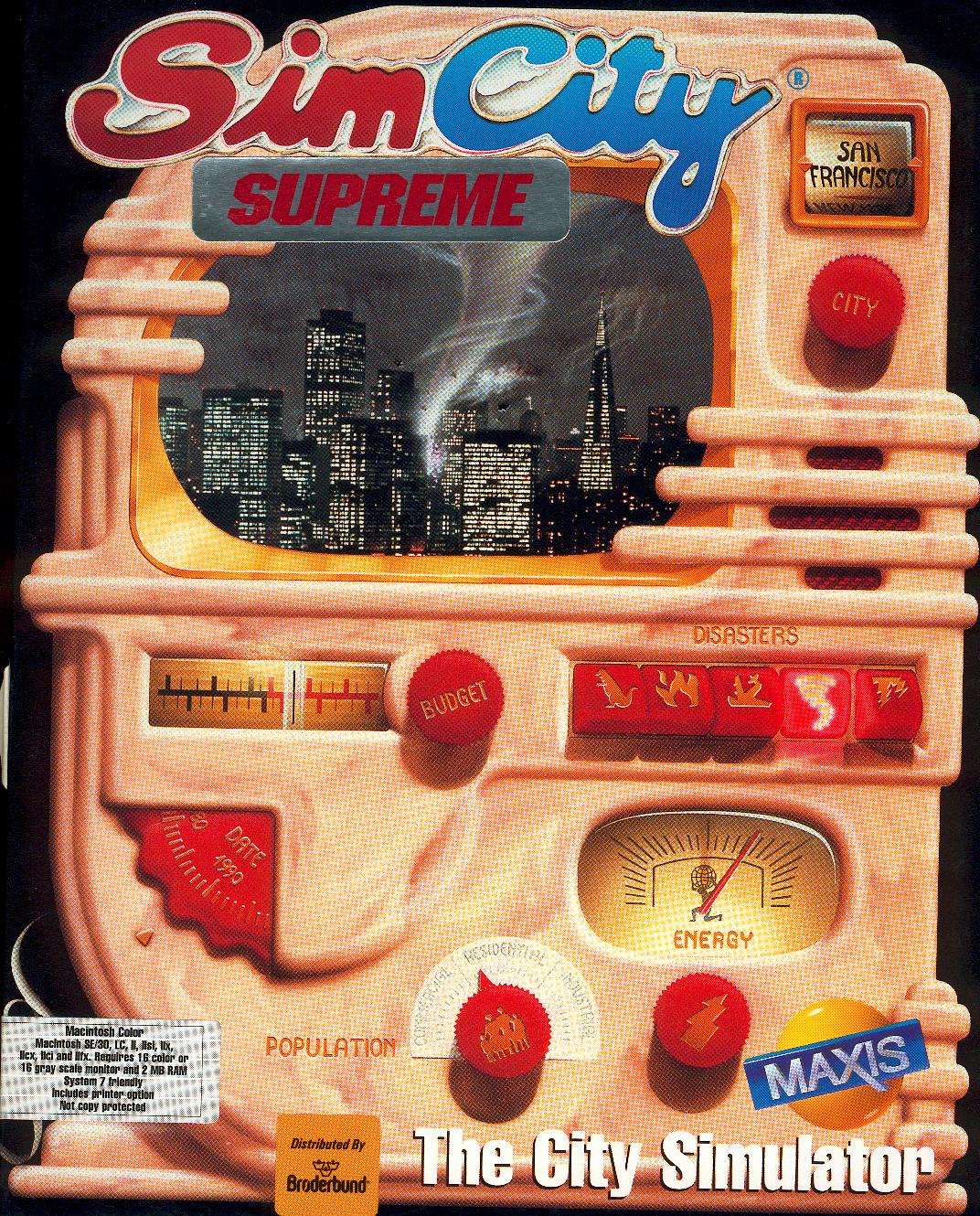 |
|
Sim City 2000 was a major upgrade of the original urban planning simulation model. It added more features and more disasters, like an alien invasion, to test your mayoral skills. Sim City 2000 also brought in the advent of the Expansion Packs. You could begin to design your own buildings. It also added more predesigned real cities that players could modify on their own systems. This started a trend of designing new game elements then trading them to other gamers through the Maxis website and other fan sites. The addictive quality of the game was that you did not have to sit and watch the screen to see how well you were doing; you could pre-set certain events and walk away. Sometimes, you would leave your city running on its own overnight. In the morning you would be surprised like Christmas of what your city had turned into (good or bad). |
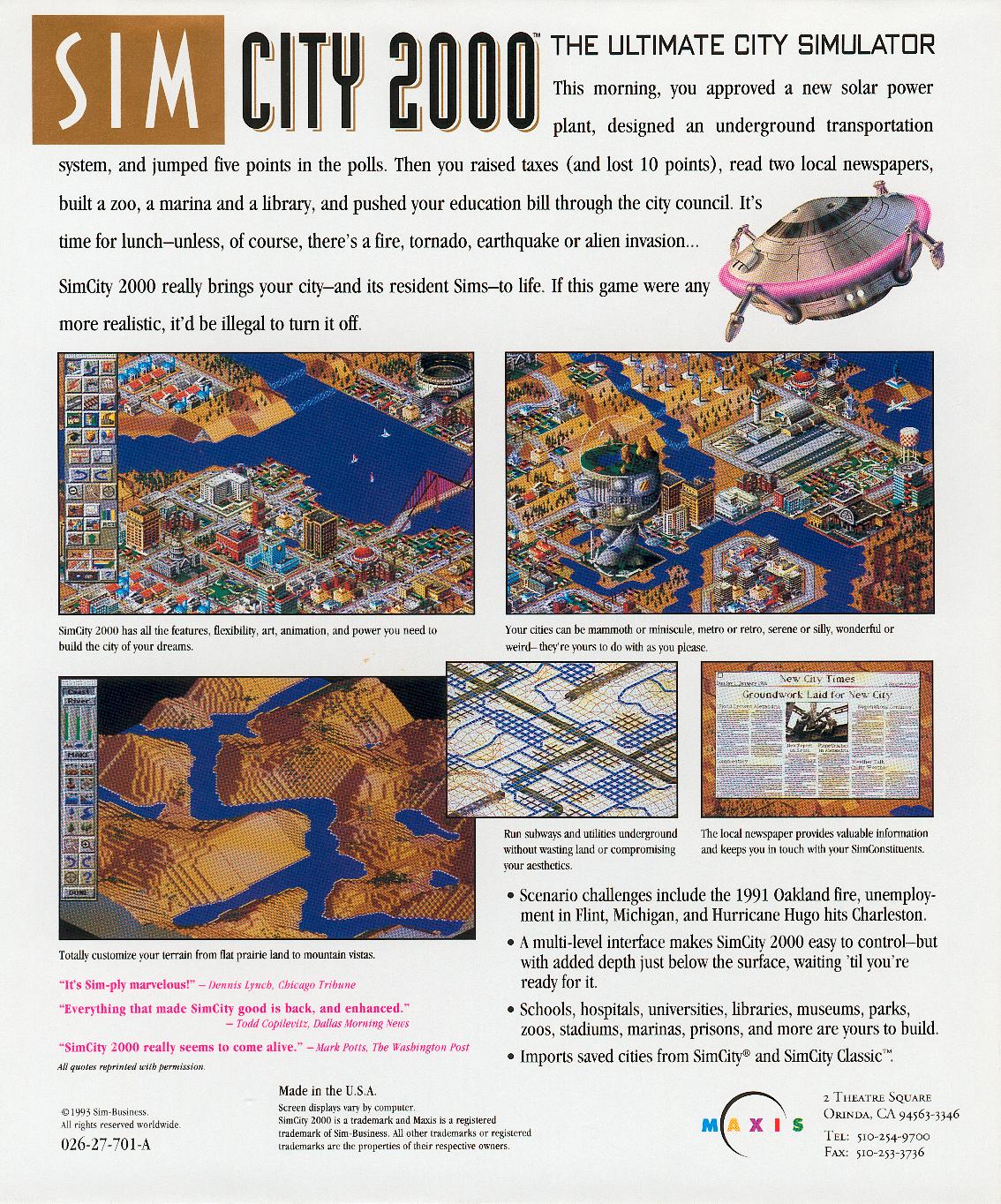 |
|
The next major upgrade, Sim City 3000, added the complexity of connecting to other cities outside the main game grid. Connecting your city to the outside world could increase your business-economic growth. However, one quickly learned that such rewards come at great cost - - - especially if the plan was not planned before implementation. By this point in time, many high school social science teachers began using this game model as a classroom tool to teach how government works. It does show the relationship between government action (or inaction) and human responses to various variable stimuli. Increase taxes slows growth. Growth requires more revenue because Sim citizens demand more services like expensive schools, hospitals or stadiums. It is a life lesson that you cannot make all the people happy at any given time. |
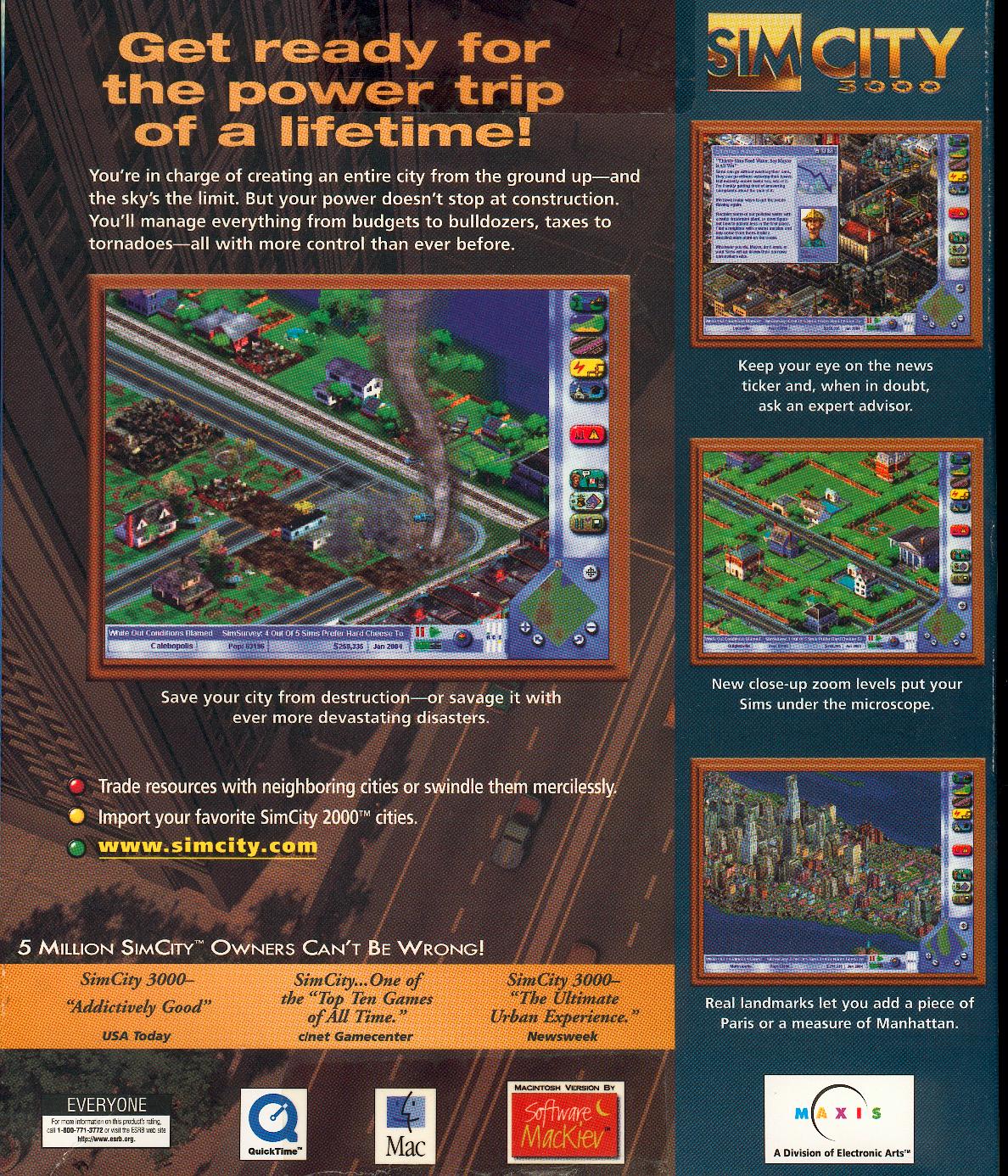 |
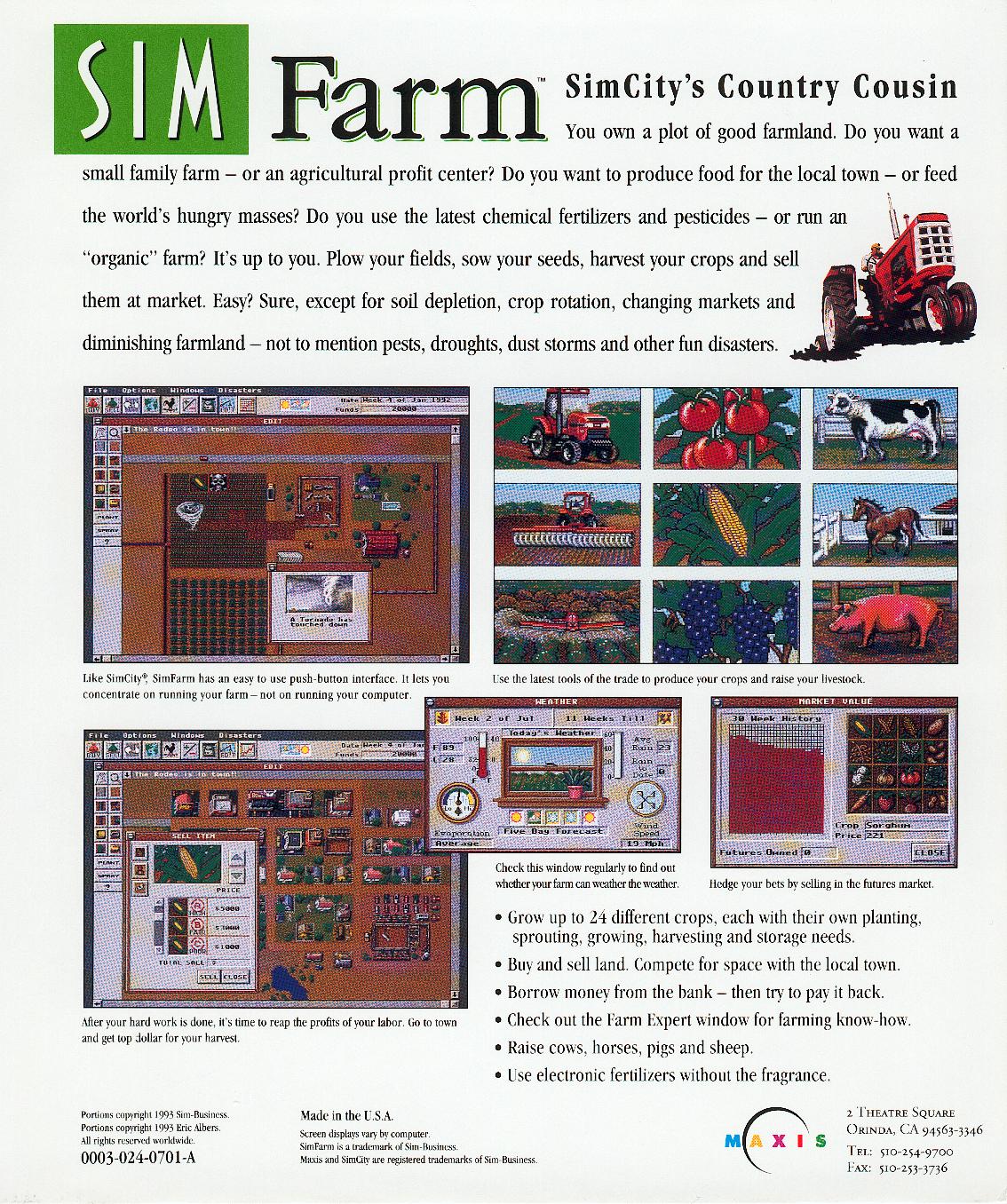 |
There were other Sim products based on the model dynamic game engine. One of the hardest games to master was Sim Farm. Suburbanites may think it must be easy to be a farmer: all you have to do is plant crops and wait for harvest. No, it is more intense and variable than that rationale. Buying seed, waiting for the proper time and proper weather conditions, then getting it all done in time are seriously confusing concepts. Even the animal care was an issue; if one forgot to feed or water the livestock, you would find bleached bones of cows in the pens. It was even harder to get the hang of harvesting crops then selling them at the right price. The market seemed to be against you at all times. And the bank loans never seemed to go down. However, if you ever visited a farm, it was quite a challenge to re-create reality. |
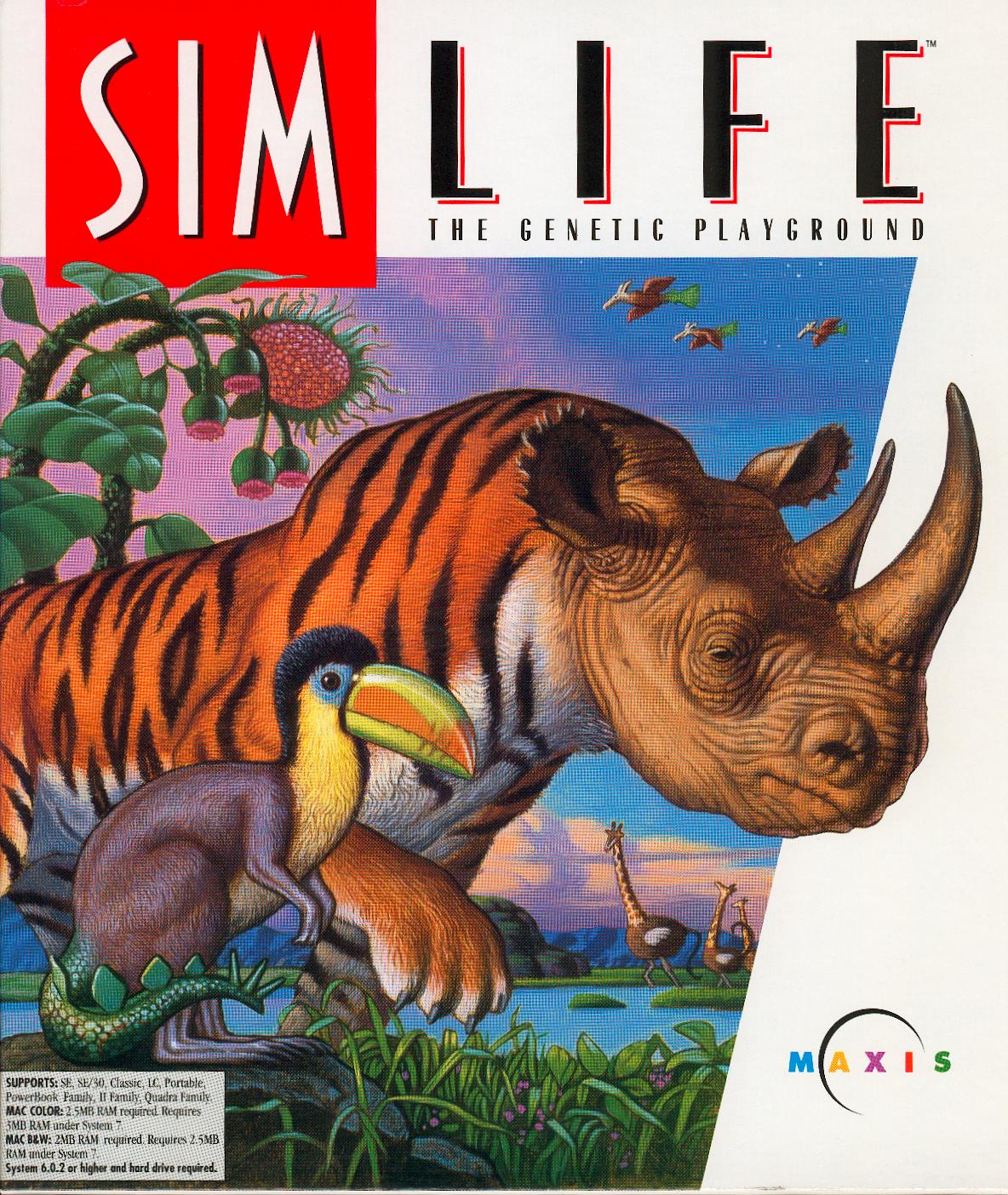 |
Then the Sims empire went wild. Instead of social science, it went into pure science mode. Sim Life was your chance to become the Jurassic Park creating life from bits of DNA in amber of millions of years of evolution. Instead of designing an urban landscape, you created your own ecosystem from the ground up then seeded it with new life forms. By designing plants and animals at a genetic level, you would learn the complexities of how plants and animals adapt to their environments. You also learn how plants and animals are dependent upon each other for their own survival. You would have to avoid mutations and natural disasters that would destroy your own world. In most long running games, your creations will mutate into strange plants and beasts. |
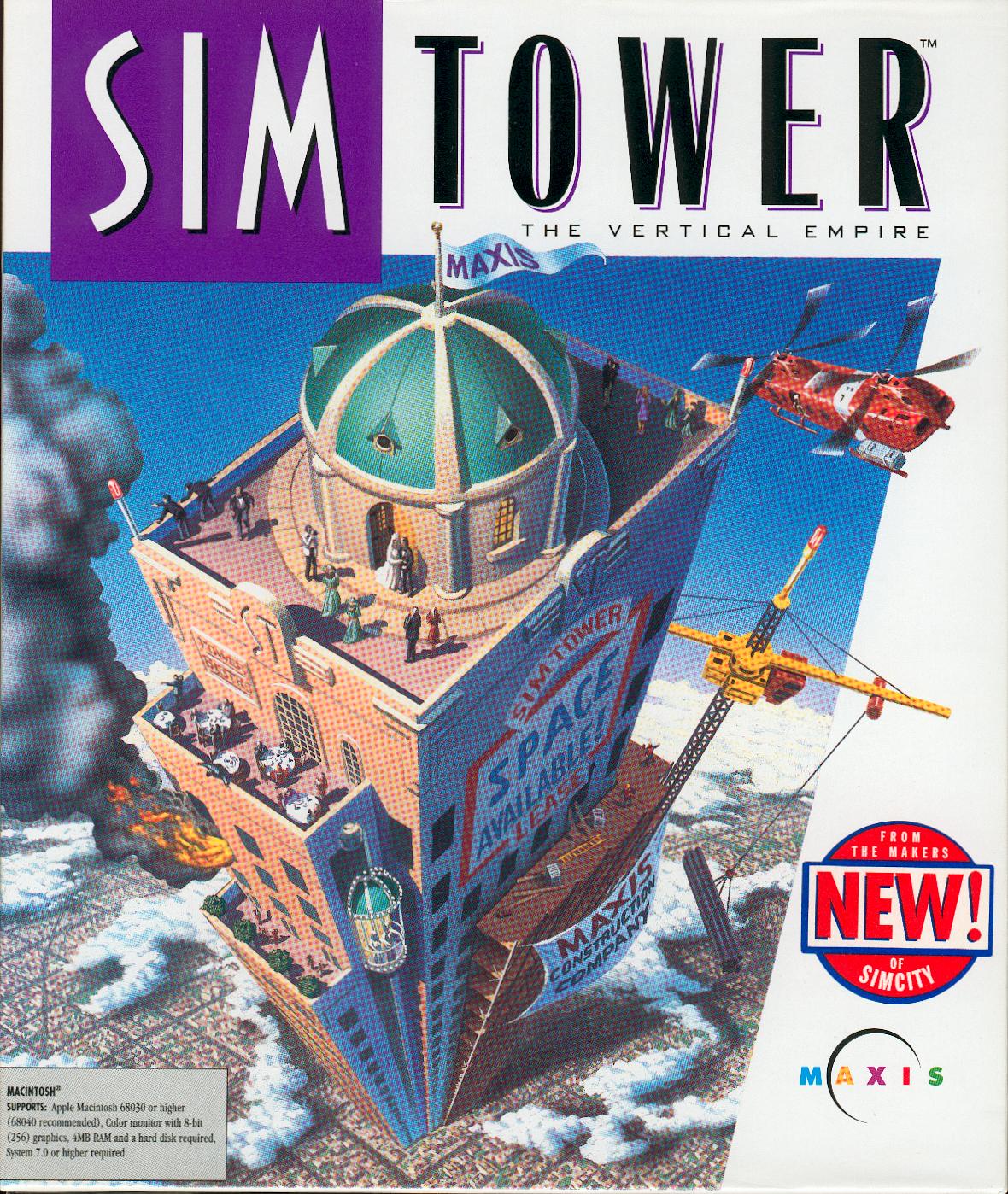 |
Probably the least known Sim game was called Sim Tower. The purpose of this simulation was to create, construct, and manage a massive skyscraper complex. As the box stated, you needed design talent, management skills, business smarts and the ability to keep your building customers happy. And that was an extreme challenge. You never control the Sims running around your building as tenants or customers. And they are a fickle bunch. The hard part was getting those Sims around in the most efficient manner. Escalators are fine between floors where you want traffic floor. But for large high rises, elevator management was a frustrating curse. You only had so much room to build elevators - - - so you could not dedicate them to a specific purpose or a single floor. Managing express elevators and sky lobbies was the key to having a successful and profitable megacomplex. |
But the strangest Sim product had to be Sim Ant. Yes, for the insect-friendly biology crowd, an electronic ant colony seemed to be the ideal model. Ants have a very industrious society. Ants are very territorial and ambitious in their growth curves. Ants are like people in many respects. But this game puts you in the role of being the ant: defending the queen, foraging for food in human houses, repelling insecticides and battle other evil ants.
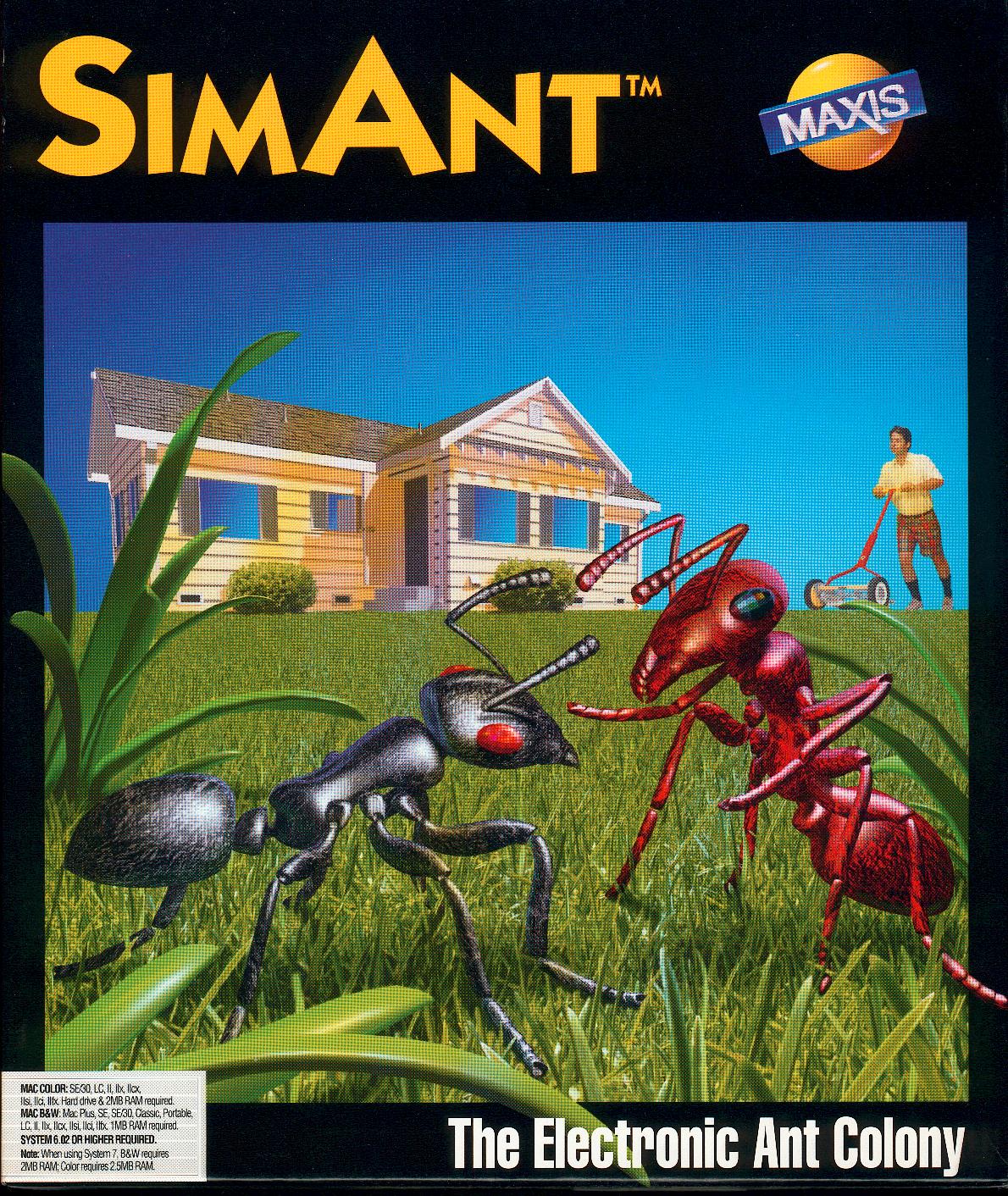 |
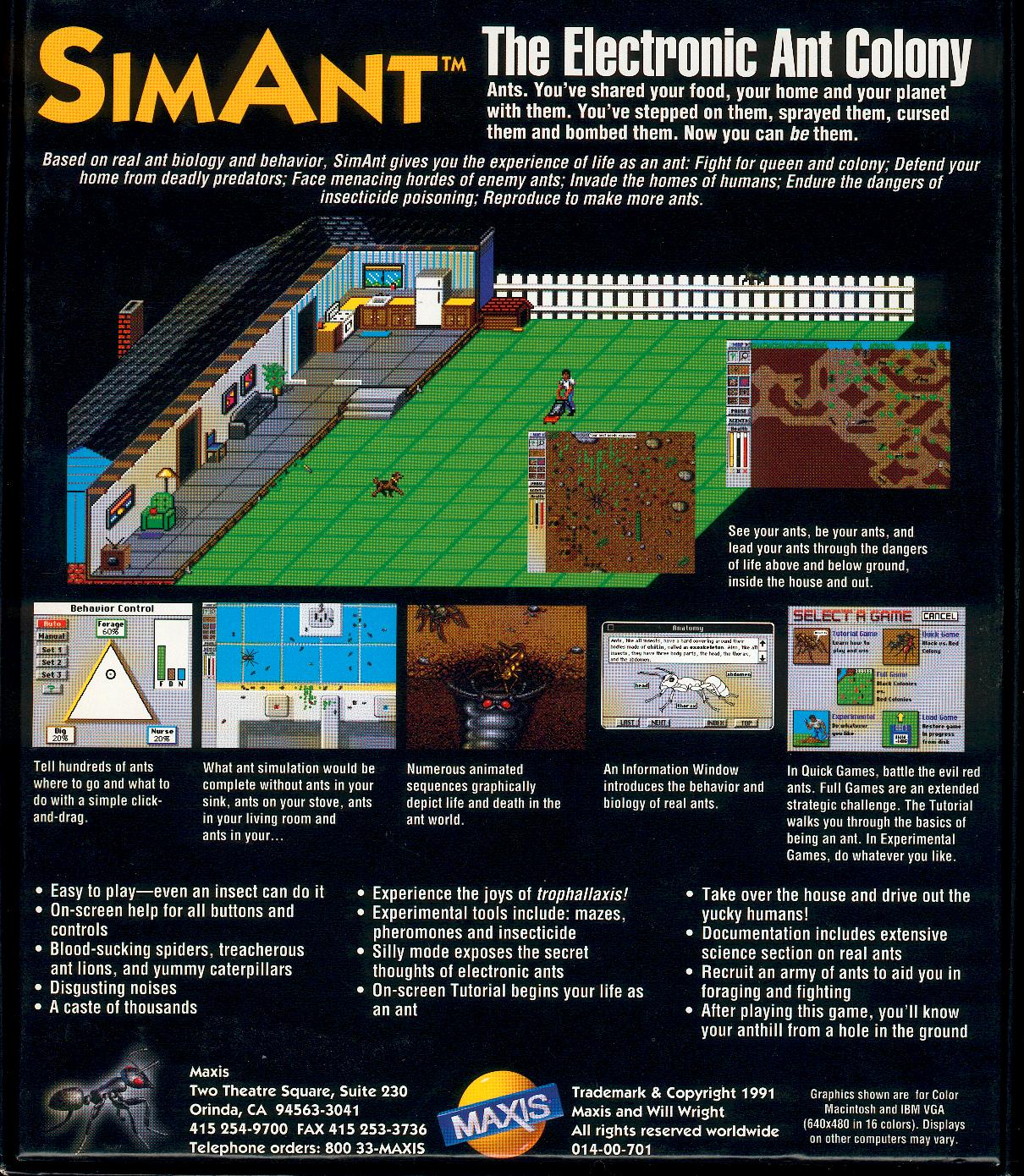 |
The creators of the Sim franchise should be congratulated for creating an enduring, unique game platform that focuses more on a player's mind and design than typical point and aim shooter computer games.
iToon

BATTER UP! DOWNLOAD
Major league baseball season is now in full tilt. The early season contains many day games, especially mid-week for travel purposes. A baseball fan in need of his or her team fix has many options. Most sports sites have real time scoreboards so you can pull up a window and see the action in play by play or graphic form of dots moving around the bases. In the 21st century, this is not a new concept. In the early 20th century, before the widespread home consumer electronics market, baseball games (especially championship games) were distributed to the masses at the local Western Union telegraph office window where a wooden or chalk board would recap the information as it spend across the country by Morse code.
There are three major web publications that offer a simulated game cast. Sports Illustrated has GameFlash:

The SI site is a basic box score with position diagrams, basic batter-pitcher mugshots and bullet point batter's count and outs. The live box score is to mimic the agate type found in most newspapers game stories.
Yahoo! has its Gamechannel version:

Yahoo! has the same features, but keeps the box score on the team batting. It's league scoreboard on the side column keeps an abbreviated track on other games in progress.
And ESPN has its Game Cast:
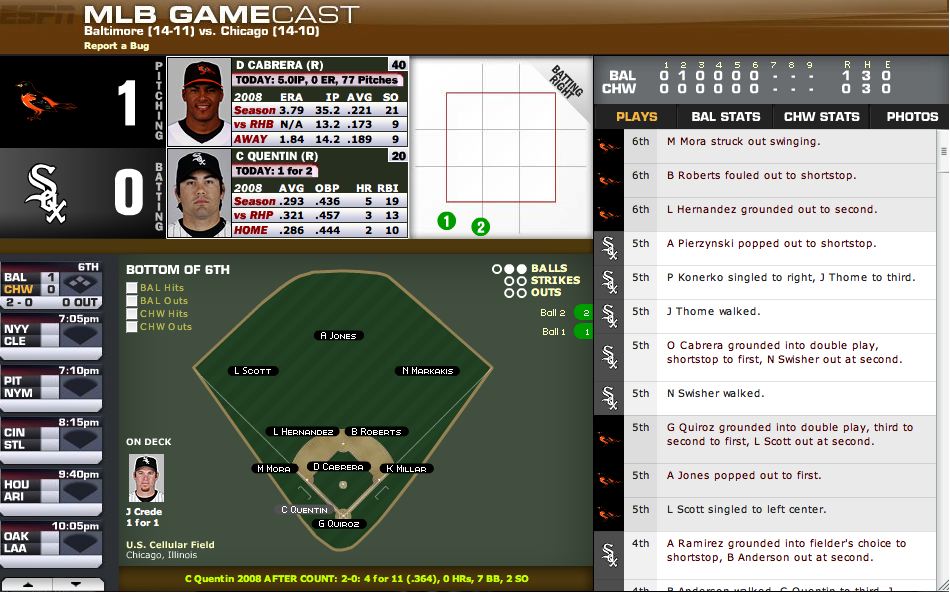
The ESPN main window crams more information, including a running play by play and player statistics, including situational hitting numbers.
As with most net-worthy programs, it is a matter of personal preference on which window meets or feeds the baseball fan's needs.
REAL NEWS KOMIX
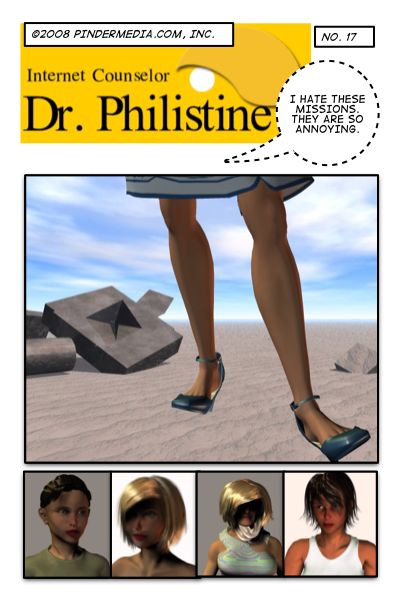 |
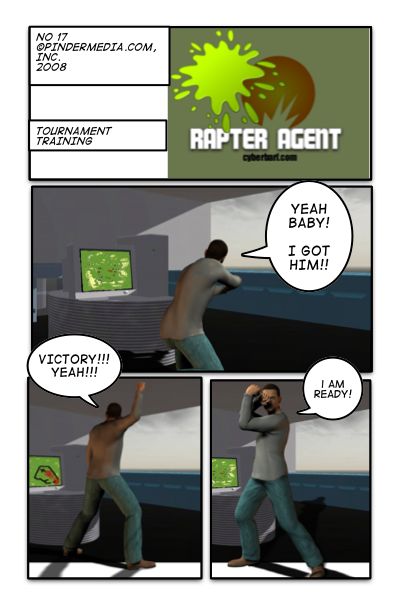 |
iToon
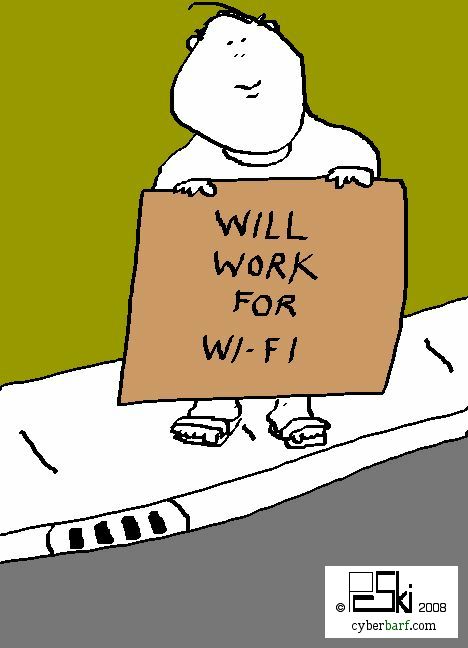
THE WHETHER REPORT STATUS
Question: Whether blowhard political blogs will change the decisions of average American voters?
* Educated Guess
* Possible
* Probable
* Doubtful
* Vapor Dream
Question: Whether Apple's new G3 iPhone will be the death knell for Moto's Razer phones?
* Educated Guess
* Possible
* Probable
* Doubtful
* Vapor Dream
Question: Whether more and more computer savvy musicians will abandon the record label business model for self-distribution over the internet?
* Educated Guess
* Possible
* Probable
* Doubtful
* Vapor Dream



